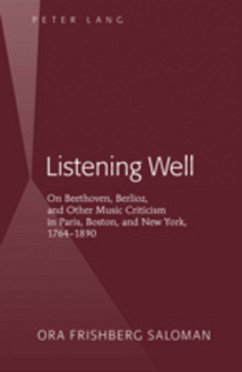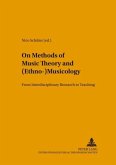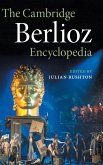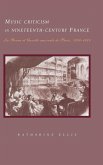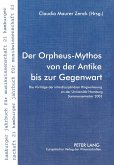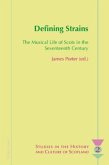The twelve essays in Listening Well illuminate aesthetic, educative, and evaluative strategies utilized by writers in Paris, Boston, and New York to guide listeners in confronting the challenges of musical modernity between 1764 and 1890. They interpret criticism from treatises, journals, and newspapers for its importance in cultural history and consider the reception of major works by Beethoven and by Berlioz. The essays explore contrasting responses to new operas and symphonies by composers, librettists, authors, critics, and conductors as well as by writers including Chabanon, Lacépède, Berlioz, Urhan, D'Ortigue, Dwight, Fuller, Watson, and Hassard. Readers interested in perceptions of Classicism and Romanticism in music as they relate to French, German, and American literature and criticism will discover how audiences on both sides of the Atlantic were encouraged to listen attentively to the new and controversial in music of the eighteenth and nineteenth centuries.
Bitte wählen Sie Ihr Anliegen aus.
Rechnungen
Retourenschein anfordern
Bestellstatus
Storno

